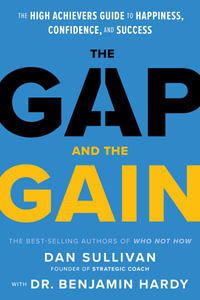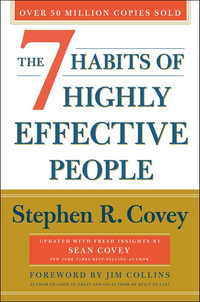Throughout the world, corporations are experiencing the second major transition in corporate governance of this century. The nature of the relationship between the corporation and the rest of society is changing fundamentally. The corporate board has unique responsibilities during this transition, but as it tries to respond directors are faced with destabilizing paradoxes: resolving who is in control--management or the board, achieving critical judgment while maintaining detachment, and avoiding becoming either a cozy club or a collection of all-stars. Written for practitioners, this book addresses corporate governance and the role of the board of directors in multinational corporations.
Based on interviews with 71 directors serving on more than 500 boards in eight countries, this book highlights the nature of the challenges and suggests ways to analyze and confront them. This major international study compares the experiences of board members in Canada, Finland, France, Germany, Great Britain, the Netherlands, Switzerland, and Venezuela.
Based on practical experience, The Corporate Board will prove indispensable to executive and non-executive directors, corporate secretaries, bankers, institutional investors, policymakers, stock brokers, and specialists in mergers and acquisitions, as well as academics and stockholders concerned about corporate accountability.
Industry Reviews
"A comprehensive international survey of how boards work and the problems they face....The discussion of the paradoxes, and the various solutions to them, is comprehensive, well-structured and illuminating....Fascinating and important."--Long Range Planning
"A breakthrough in management research."--The Financial Times
"Merits highest recommendation for its unique perspectives and for its ambitious approaches to fundamental issues in management."--Choice
"[A] stimulating book assessing board practice and structure in Britain, Germany, France, Finland, The Netherlands, Switzerland, Canada, and Venezuela. The authors, both Swiss academics with wide experience of international companies, write elegantly (a distinct bonus in such a book)....[A] timely and valuable contribution to the corporate governance library."--Director
"This is a handbook for directors which will give guidance and spark new thinking on the organization and structure of boards. Maybe one day boards will be persuaded to evaluate their own performance. It's all in this book!"--Sir Anthony Pilkington, Chair, Pilkington PLC
"A comprehensive international survey of how boards work and the problems they face....The discussion of the paradoxes, and the various solutions to them, is comprehensive, well-structured and illuminating....Fascinating and important."--Long Range Planning
"A breakthrough in management research."--The Financial Times
"Merits highest recommendation for its unique perspectives and for its ambitious approaches to fundamental issues in management."--Choice
"[A] stimulating book assessing board practice and structure in Britain, Germany, France, Finland, The Netherlands, Switzerland, Canada, and Venezuela. The authors, both Swiss academics with wide experience of international companies, write elegantly (a distinct bonus in such a book)....[A] timely and valuable contribution to the corporate governance library."--Director
"This is a handbook for directors which will give guidance and spark new thinking on the organization and structure of boards. Maybe one day boards will be persuaded to evaluate their own performance. It's all in this book!"--Sir Anthony Pilkington, Chair, Pilkington PLC
"This book is a welcome addition to the leadership literature. We know that leaders are important but we have not studied nearly enough how boards appoint leaders and what leadership roles board members themselves play. This is an excellent piece of research that provides a wealth of data on the role and functioning of boards."--Edgar H. Schein, Sloan School of Management, MIT
"I regret that this was not written twelve years ago when I began participating in board affairs. No one who shoulders serious corporate responsibility should pass up the opportunity to read this book. While it is a practical book for practitioners, its concepts provide guidance for a future when public questioning of corporate governance will become more intense."--William J. O'Brien, President, the Hanover Insurance Company
"This book has been waiting to be written. In the vast literature on management one of the most undertreated subjects is the role and function of boards of directors. Ada Demb and F. Friedrich Neubauer have elevated the subject to its appropriate status. It will be a significant resource for present and potential chief executives and board members."--Richard Beckhard, President, Richard Beckhard Associates
"Finally someone talks about the realities of dynamics from board members' point of view. The benefits of this perspective are in this book; they only need to be exploited."--Dr. Wisse Dekker, Chair, Philips Electronics, NV
"The Corporate Board quotes a number of chairmen with dogmatic views on the subject. One says: It's absolutely important to separate the two. I distrust the two in one. If you do both, the chairman always loses to the chief executive role."--The London Times
"This is a thoughtful book, with a good scientific basis that ushould be a strong point of reference in future research on the subject of corporate governance and, hopefully, passed from hand to hand by board members."--European Management Journal
"Demb and Neubauer provide a thoughtful starting point for any consultant working in the area: how do different members of the same board see and experience the board, what are the differences in perspective between executive and non-executive directors (on the same board, but also in general), what are the differences in perspective and practice between companies with single boards and those with two-tier boards (the research spanned eight
countries)?--Management Consultancy
"[A] wide-ranging book....This research is the first of its kind."--International Management
"An important new book on corporate governance....This is also a timely book coming in an era in which the public is demanding much more of firms than it has in the past."--Corporate Governance
























